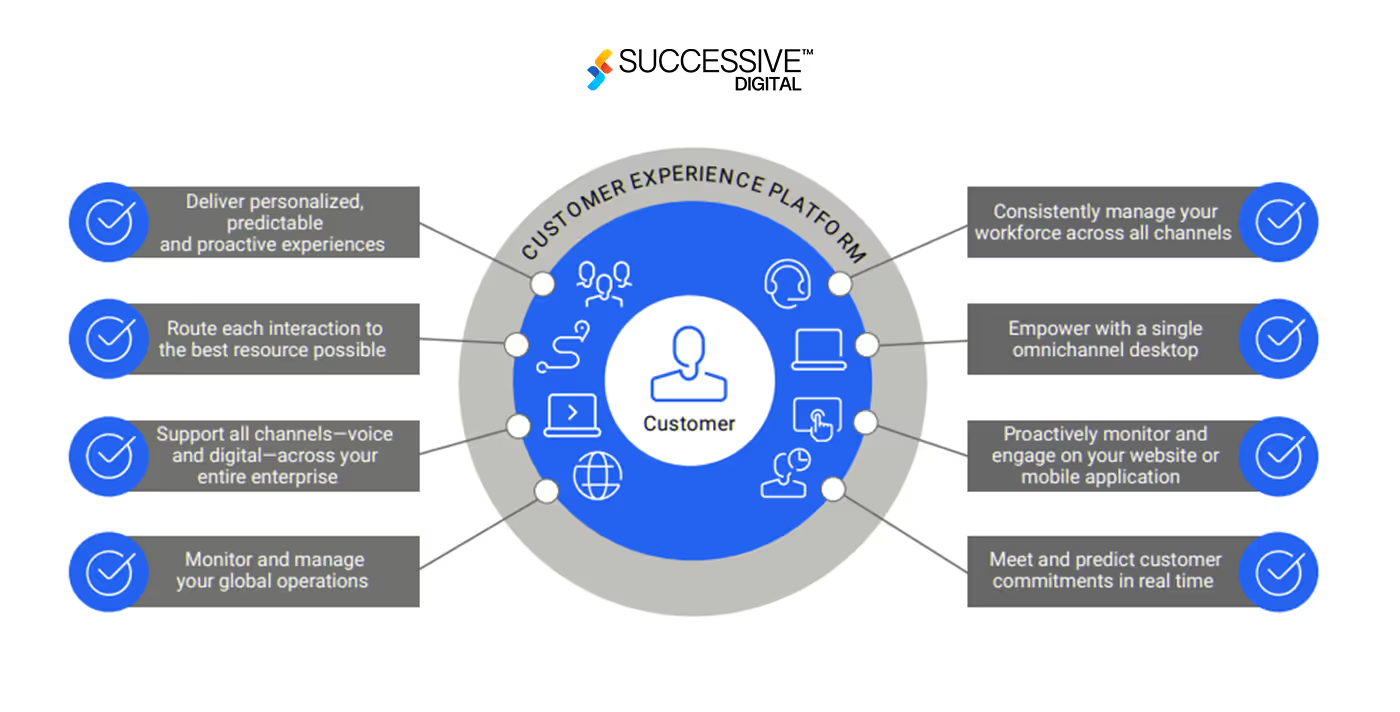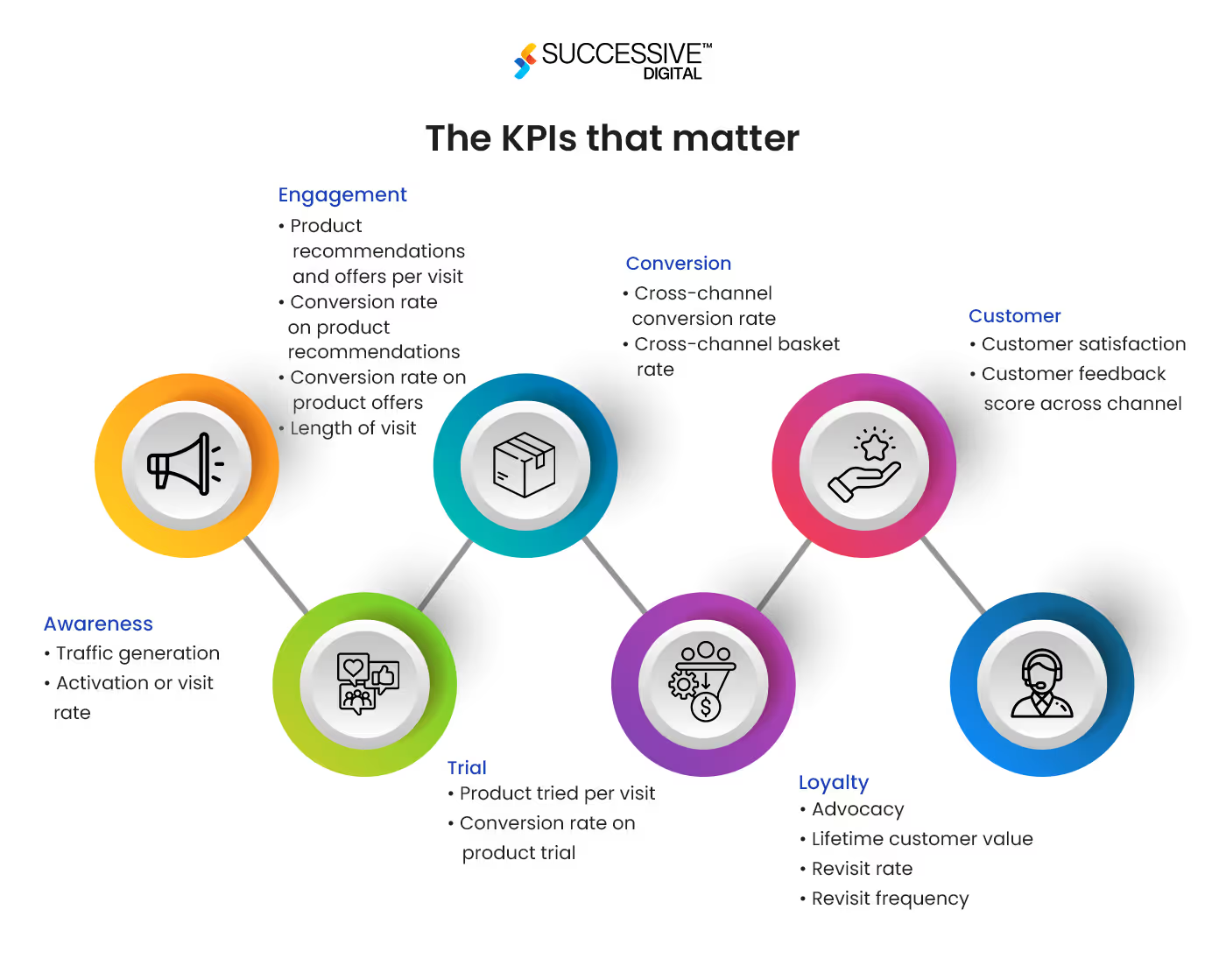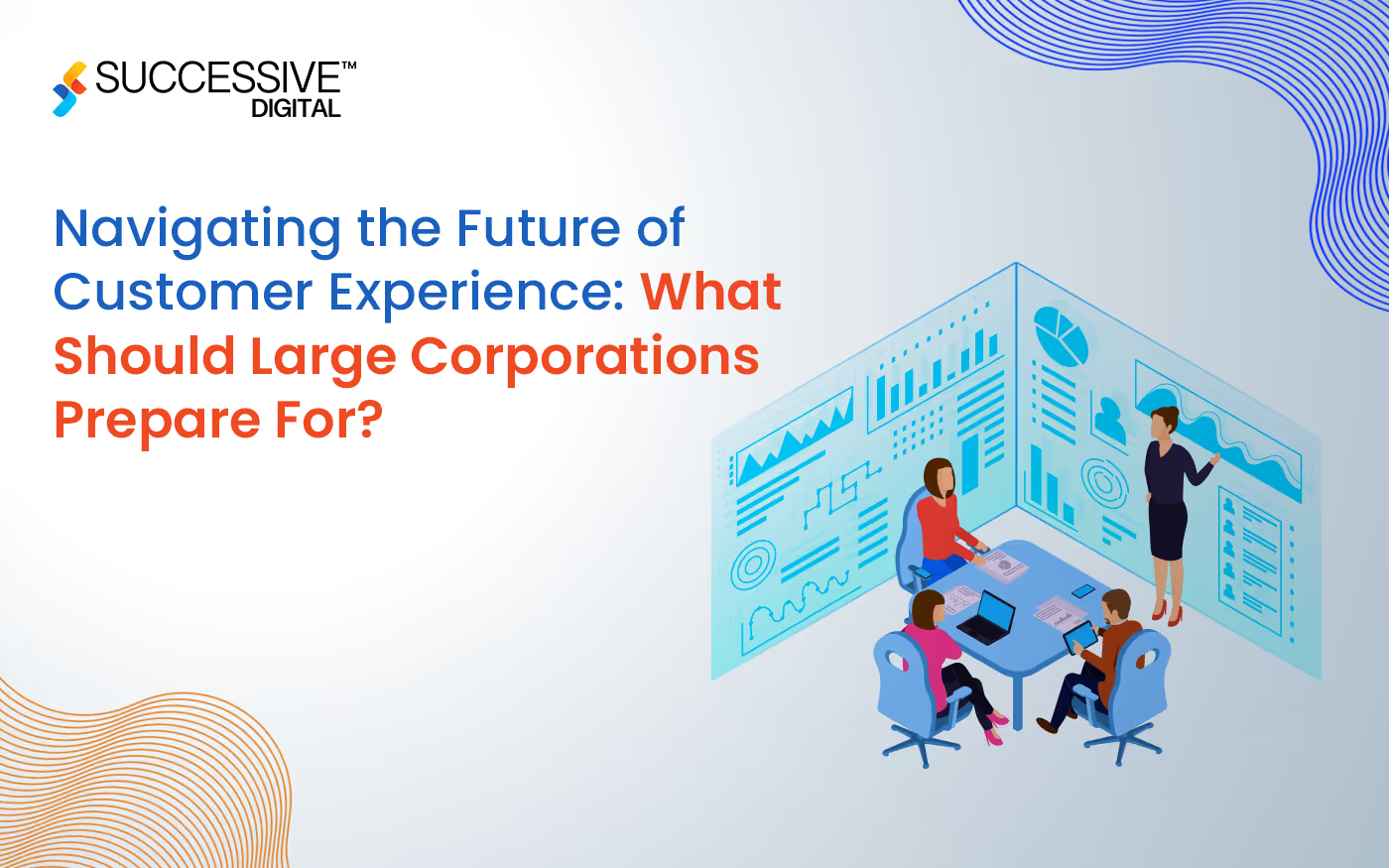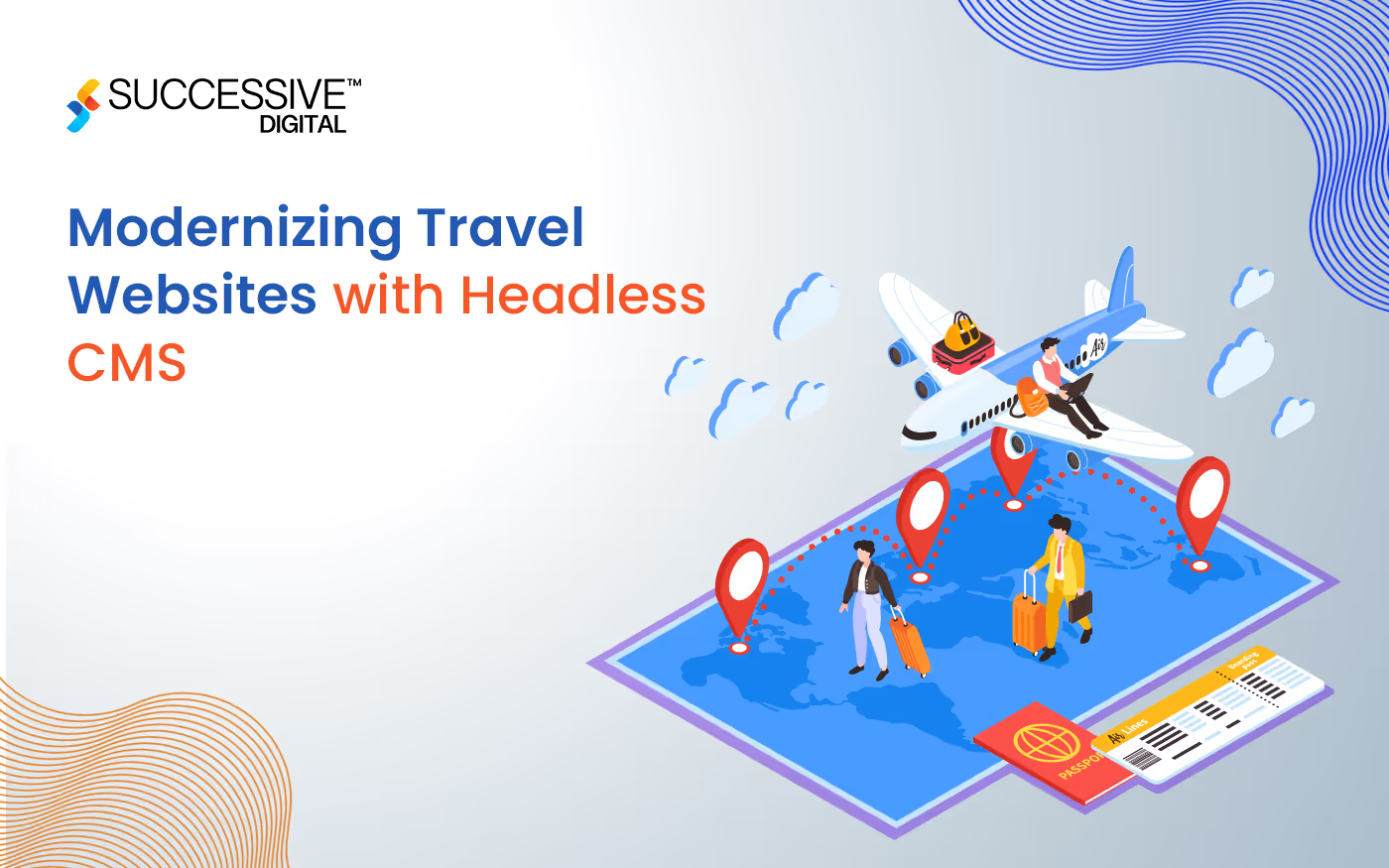In the fast-paced and ever-evolving landscape of business, customer experience (CX) is a critical differentiator for large enterprises. As technology continues to advance, consumer expectations change and international dynamics reshape the industry space to proactively transform future of CX for large organizations. It is essential to anticipate and prepare for the interest of companies to sustain and compete with strategic developments. This comprehensive blog will guide through the emerging CX trends, technological developments, and strategies that large organizations should consider to enjoy the future of the customer experience.
The Strategic Imperative of Customer Experience
Customer experience has gone beyond being a differentiator and is not a strategic priority for large enterprise set-ups. In an internationally connected business network where the voice of consumers reverberates worldwide, the ability to deliver seamless, customized, and sophisticated experience is valuable for staying competitive and fostering continuous improvement development.
The Dynamic Landscape of CX
The CX landscape is dynamic, driven by technological innovation, changing consumer behavior, and macroeconomic factors. This blog provides a forward-looking growth perspective to shape the destiny of the large corporations, offering actionable insights for corporate planning to continue to lead the industry and stay ahead of the curve.
Technological Advancements Shaping CX
Artificial Intelligence (AI) and Machine Learning
- Personalization at Scale:
AI-drived personalization is forming the priority guidelines in board rooms. Large organizations should expect integrated AI to dramatically refine customer journeys, products, supply chains, and transactions based primarily on problematic record insights.
- Predictive Research for Active Engagement:
Machine learning algorithms are essential in predictive analytics, shaping the future of CX, enabling organizations to anticipate customer needs and problems. Active engagement is a perfect trademark of customer interest.
- Chatbots and Virtual Assistants:
Sophisticated chatbots and digital assistants will provide more natural language processing and expertise. Large companies must assemble AI-powered chat networks that are increasingly important for customer service and engagement.Amazon's AI-driven RecommendationsPowered by AI and machine learning algorithms, Amazon's recommendation engine analyzes customer behavior, purchase records, and highly personalized product recommendations. This personalization process increases overall customer happiness, which improves engagement and satisfaction.
Augmented and Virtual Reality
- Engaging Customer Experiences:
Augmented and virtual reality technologies will reshape the CX trends and customer interactions. Large companies must recognize how AR and VR can be immersive reports, from digital content to interactive virtual showrooms.
- Training and Onboarding:
AR and VR will promote employee education and onboarding beyond physical interactions. Companies should commit to using this technology to develop internal processes for improving efficiency and effectiveness.Disney’s MagicBands and IoT integrationDisney’s MagicBands leverage the IoT era to enhance entertainment experiences at the theme park, offering seamless access opportunities, personalized interactions, and real-time records for business operations. This combination of AR, IoT, and customer experience demonstrates the power of embedded technology in large corporations
Internet of Things (IoT) in CX
- Connected Ecosystems:
The proliferation of IoT devices will lead to interconnected consumer ecosystems. Large corporations should put together a seamless integration of IoT data to recognize client conduct and possibilities throughout various touchpoints.
- Predictive Maintenance and Service:
IoT-enabled devices will facilitate predictive maintenance and carrier, making proactive decisions. Corporations must leverage IoT information to enhance product reliability and anticipate client needs before issues stand up.Predictive Maintenance via Rolls-RoyceRolls-Royce uses IoT sensors in its plane engines to collect real-time facts on engine performance. This information is analyzed to expect capacity troubles and timetable upkeep earlier than a failure happens. This proactive method enhances reliability and customer satisfaction.
Evolving Consumer Behaviors and Expectations
Hyper-Personalization and Individualization
- Beyond Segmentation:
Consumers are now expecting more personalized experience which is beyond the typical demographic segmentation. Larger companies must incorporate data-driven strategies to understand individual requirements and deliver customized content.
- Personalized Marketing Automation:
Marketing automation platforms provide incredible new levels of personalization as one of fastest growing CX trends. Companies should explore AI-powered advertising and marketing automation tools that dynamically change content and offers based primarily on real-time user behavior.Netflix’s Dynamic Content RecommendationsNetflix uses advanced algorithms as part of CX corporate planning to analyze user behavior and preferences. The platform dynamically customizes content recommendations based on individual behavior, creating a highly personalized streaming entertainment experience for each consumer.
Omni-Channel Experiences

- Seamless Integration:
The demand for seamless omnichannel will grow further to shape the future of CX. Larger organizations need to spend on technologies that ensure consistency across channels and enhance the presence of unified and consistent brand experience.
- Customer Overview:
Successful omni-channel strategies require customer feedback. Companies need to work to break down silos and develop a unified view of customer interactions, regardless of channel.Starbucks Mobile Ordering and Rewards StrategyStarbucks seamlessly integrates its mobile app with in-store learning through its mobile ordering and payment capabilities. Through the app, customers can order nearby items, pay in advance, and even choose to save their orders, enhancing the frictionless omnichannel experience.
Ethical and Transparent Practices
- Data Privacy Concerns:
Increased concerns about data confidentiality will affect the consumer's acceptance of authenticity. Large corporates must prioritize transparent data record practices, provide management over customer information, and ensure compliance with global regulations.
- Ethical AI and Decision-Making:
As AI becomes more integrated into CX, ethical considerations will gain more momentum. Companies need to establish processes for the ethical use of AI and transparent technology selection and design processes.Apple Focuses on PrivacyApple has positioned itself as a champion of personal privacy. The company emphasizes opt-out encryption over private records, minimal sequential data, and customer monitoring. This commitment to ethical form-keeping practices supports customer trust and loyalty.
Strategic Imperatives for Large Corporations
Agile Organizational Structures
- Adaptability and Flexibility:
Larger companies must foster agile organizational structures that adapt rapidly to changing sponsor expectations and market dynamics. An agile approach allows for rapid and responsive innovation for a better future of CX.
- Cross-Functional Collaboration:
Enterprises should break down silos by encouraging cross-functional collaboration. CX is a collaborative effort that includes departments' past advertising and customer support. Collaboration ensures a holistic approach through auxiliary strategies.Spotify’s Agile ApproachSpotify adopts an agile organizational structure that fosters rapid innovation. Cross-functional teams create a model to react quickly to changing market trends and customer preferences, ensuring a proactive and customer-centric approach.
Continuous Learning and Adaptation
- Investing in Employee Training:
Equip employees with the capabilities needed to navigate evolving CX technologies. Ongoing skills ensure that teams are familiar with available tools and techniques.
- Frequently Used Feedback:
Establish feedback loops that capture every customer and employee's insight. Use this information to refine CX strategies frequently, adapting to evolving customer expectations by incorporating learned training to strengthen overall corporate planning.Google's Learning and Development ProgramsGoogle places great emphasis on knowledge acquisition and relentless improvement. The department provides employees opportunities to develop their capabilities and collects regular feedback to improve internal perception and employee experience.
Integration of CX Metrics with Business KPIs

- Alignment of CX with Business Objectives:
Ensure CX metrics align with broader business objectives. Larger companies should integrate CX Key Performance Indicators (KPIs) with financial metrics to demonstrate tangible impact on bottom-line customer-focused initiatives.
- Real-time Analysis:
Use real-time analytics to highlight CX metrics and KPIs. Companies must use technology to gain immediate insights, make short changes, and create informed choices.Amazon’s Customer-centric Business ModelAmazon effectively integrates CX metrics with its marketing and business objectives. The organization’s relentless focus on customer satisfaction coincides with being named “the most customer-focused employer on earth.” This customer-focused approach has consistently translated into sales and operating income.
Future Considerations and Conclusion
Embracing CX evolution
- Agility as a Core Skill:
Creating and developing a new strategy can be crucial for large organizations to keep up with global CX trends. Agile thinking places organizations to navigate the changing customer experience.
- The Ethical Policy of AI:
There is a need to establish ethical AI policies and recommendations. Balancing innovation and moral issues should lead large companies to adopt responsible AI.
Cooperative organisms
- Industry Discussion:
Collaborative efforts across industries can put pressure on CX innovation. Larger teams should seek partnerships to solve challenges and develop best practices in part.
- Collaborative Associations:
Collaborating with experienced technology partners can lead to better results and ongoing feedback. Larger teams must foster partnerships with innovative companies to stay ahead of emerging technologies.
Anticipating Societal Shifts
- Social Impact of CX
Anticipate and respond to broader social changes that may affect customer expectations. Thus, latest CX trends must be adapted to large corporations' cultural and social dynamics.
The Human Element of CX
- Balancing Automation with the Human Touch
Large organizations need to understand the cost of long-term human interaction when embracing technological advances. Maintaining consistency between processes and human interaction is critical for authentic customer interactions.
CX Journey
- Iterative CX Development:
The CX strategies used by large companies should be seen as iterative, constantly evolving based on feedback, trends of the moment, and changing market dynamics.
Disney: Immersive Experiences with Technology
- MagicBands and IoT integration:
Disney MagicBands leverage the new generation technology of IoT to enhance the enjoyment experience at the theme park and gain easy access to live performances, customized interactions, and real-time logs. This combination of AR, IoT, and customer experience demonstrates the power of embedded technology in large organizations.
- Virtual Reality in Entertainment:
Disney’s exploration of VR in adventure content and experiences demonstrates the potential of augmented and virtual reality to create immersive consumer experiences. Key Takeaway: Disney’s strategic use of technology, such as MagicBands and VR, shows how big brands can create magical and immersive learning experiences that connect customers across multiple touchpoints.
Future Considerations and Conclusion
In the future of customer experience, large corporates will stand between innovation and customer expectations. The CX trends discussed here—from AI and IoT to hyper-personalization and ethical concerns—allow teams to anticipate and prepare for the evolving CX landscape. By embracing agility, encouraging collaboration, and placing a formal corporate planning structure on ethical practices, large brands can easily move into the future. By focusing on increasing customer experiences via customer-centric strategies that are inspiring and enduring in long run, the success toward CX destiny can give sustained outcomes. The future of CX is collaborative process that requires vision, flexibility, and a solid commitment to put the customer at the center of every touchpoint.
.avif)



.webp)






.jpg)









